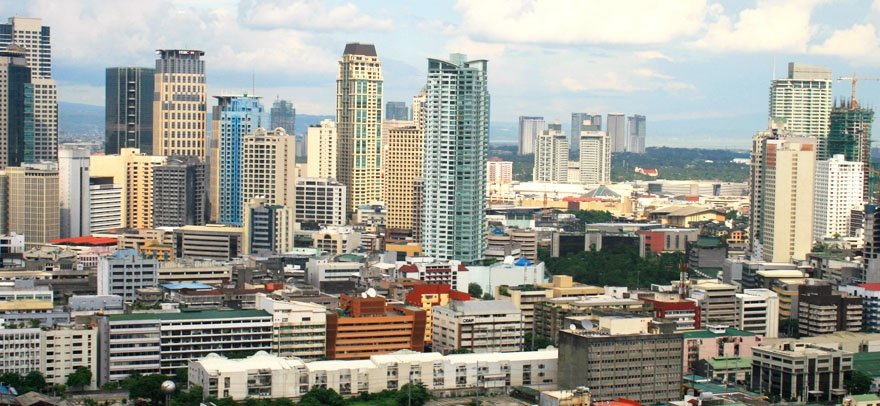
2017 Philippine Investment Priorities Plan Approved
The approval of the 2017 Philippine Investment Priorities Plan (IPP) by President Rodrigo Duterte has prompted investors to revisit opportunities in establishing and expanding businesses within and outside Metro Manila. It would be to any business’ advantage to consider maximizing the incentives provided by the BOI and DTI through the 2017 Investment Priorities Plan. The robust business environment in Manila is always a good place to start before exploring other key cities or rural options. This makes consulting credible law firms in the Philippines a crucial step to take prior to crafting other investment-related decisions.
As an overview, signed last February 28, the 2017 Philippine Investment Priorities Plan highlights opportunities across industries and markets in the Philippines which may have been missed in the 2014-2016 IPP. Activities in certain industries which were once not as attractive as they currently are and would be in the coming years are given emphasis in the latest 2017 IPP. This gives foreign and local investors the necessary guidance on where to focus for initial capitalization or business expansion, with the assistance of and incentives from the government. The Implementing Rules and Regulations (IRR) of the IPP will specify the set of employment requirements and minimum investment guidelines which will enable businesses to strategize and qualify for the incentives. Trade Undersecretary Ceferino S. Rodolfo emphasized that the rules have been eased to encourage more businesses to apply and qualify for the incentives.
The 2017 IPP expounds on four major priority investment areas. These include (1) preferred investment activities, (2) export activities, (3) activities based on Special Laws granting incentives, and (4) activities in the ARMM region.
Under the ‘preferred investment activities’, the IPP expanded on the following areas:
- Manufacturing including Agro-Processing;
- Agriculture, Fishery, and Forestry;
- Strategic Services such as
- Integrated Ciruits (IC) Design,
- Creative Industries or Knowledge-based Services,
- Maintenance, Repair, and Overhaul of Aircraft,
- Charging/refuelling stations for Alternative Energy Vehicles,
- Industrial Waste Treatment,
- Telecommunications,
- State-of-the-Art Engineering, Procurement, and Construction;
- Healthcare Services including Drug Rehabilitation Centers;
- Mass Housing;
- Infrastructure and Logistics including LGU-PPs;
- Innovation Drivers;
- Inclusive Business Models;
- Environment and Climate Change-Related Projects; and
- Energy
A notable clause is the one provided for ‘Innovation Drivers’ which covers activities outside the manufacturing-driven approach to investment growth. This clause for Innovation Drivers which covers Research & Development (RD) activities, establishment of excellence and innovation centers, business incubation hubs, and fabrication labs (fablabs) or co-working spaces among others, makes the 2017 approach more inclusive and holistic. The previous IPP (2014-2016) focused on manufacturing resurgence and other high-level activities somehow narrowed the chances of smaller investors to participate and qualify for the incentives. This clause on Innovation Drivers opens the window for smaller investors, expanding market participation in growing local economies. Interestingly, the clause also covers commercialization of new technologies and products of DOST and the outputs of government-funded research. It is almost unusual to learn about the government supporting innovative solutions given that the government is generally expected to funnel resources toward activities which would have massive impact. Usually, these are activities proven to create more jobs and prompt higher involvement for communities. Under the 2017 IPP, businesses engaging in more specialized areas which are driving innovation, such as Agricultural biotechnology tools, portable technologies, hardware or software for prevention of disease outbreaks, photonics and nanotechnology among others, can qualify for the incentives.
Another set of activities highlighted in the 2017 IPP are the ‘export activities’ from the Philippines. These activities would include production and manufacturing of export products, service exports, and other activities in support of exporters.
The activities under ‘special laws’ also provide highly-specialized businesses the opportunities to qualify for incentives under the 2017 IPP. Though, in order to qualify for such incentives, businesses may require in-depth understanding of existing laws such as the Industrial Tree Plantation (P.D. 705), Mining (R.A. 7942), Renewable Energy (R.A. 9513), among others. Again, consulting a highly-credible law firm in Manila would be a prudent step to take. If you are a foreign investor seeking to establish a business in the Philippines, or if you already have your business situated in the Metro-South, a law firm in BGC – Kittelson & Carpo – offers reliable and expert solutions to guide you in assessing your activities and aligning them with the guidelines of the 2017 IPP.
Lastly, the ‘ARMM List’ of activities shows investment areas which encourage businesses to service the ARMM market. These include Export Activities; Agriculture, Agribusiness, and Aquaculture and Fishery; Basic Industries; Infrastructure and Services; Industrial Service Facilities; Engineering Industries; Logistics; BIMP-EAGA Related Investment Enterprises; Tourism; Health and Education Services and Facilities; Halal Industry; Banking, Non-Bank Financial Institutions and Facilities; and Energy.
With such a wide scope of prioritized investment activities, it would be ideal for businesses to engage a professional law firm in Manila which can provide clear guidance on its details. The law now encourages both huge and small investors to apply for eligibility. Businesses should now be more empowered to assess their eligibility and maximize this opportunity provided by the current government to businesses across the country.
